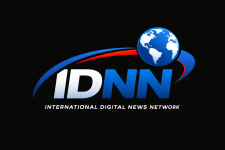Subsidy Funds Not Missing, We Used It for Debt — NNPC Replies World Bank Over ₦500bn Gap
✍️ By: IDNN Policy & Petroleum Economy Desk
As backlash builds over the ₦500 billion gap in remitted fuel subsidy savings, the Nigerian National Petroleum Company Limited (NNPCL) has broken its silence, insisting that the funds were not embezzled, but rather channeled toward servicing inherited oil sector debt.
“This is not misappropriation. It’s debt recovery,” a senior NNPCL official told IDNN, responding to the World Bank’s Nigeria Development Update that accused the state oil firm of withholding half of subsidy removal gains from the Federation Account.
THE CLAIM:
-
NNPC was expected to remit ₦1.1 trillion from crude sales and deregulation gains
-
Only ₦600 billion has been transferred
-
The remaining ₦500 billion, NNPC says, went toward settling legacy debts from years of underfunded crude purchases and refined product imports
THE CONTROVERSY:
The World Bank, in its recent report titled “Building Momentum for Inclusive Growth,” pushed back on NNPC’s defense.
“Revenue remittances from NNPC remain well below expectations… despite full subsidy removal in October 2024, transfers only began in January 2025 and cover just 50% of anticipated inflows.”
STALEMATE: WHO OWES WHO?
-
NNPCL’s position: The FG owes ₦6.1 trillion
-
FG’s claim: NNPC owes ₦7.8 trillion
-
Net arrears claimed by NNPCL: ₦1.7 trillion
This accounting standoff has delayed FAAC inflows, affecting federal, state, and local government budgeting across the country.
IDNN INSIGHT:
The core issue isn’t just the money — it’s the transparency deficit.
While NNPCL argues its actions are legally defensible, stakeholders — including the World Bank — are demanding public-facing breakdowns of all deductions, debt profiles, and repayment schedules.
WHAT’S AT STAKE:
-
Faith in fuel subsidy reform could erode if savings aren’t transparently tracked
-
State governors, reliant on FAAC, have already raised alarm over reduced allocations
-
Global investors are watching to see if Nigeria’s oil revenue pipeline is credible
